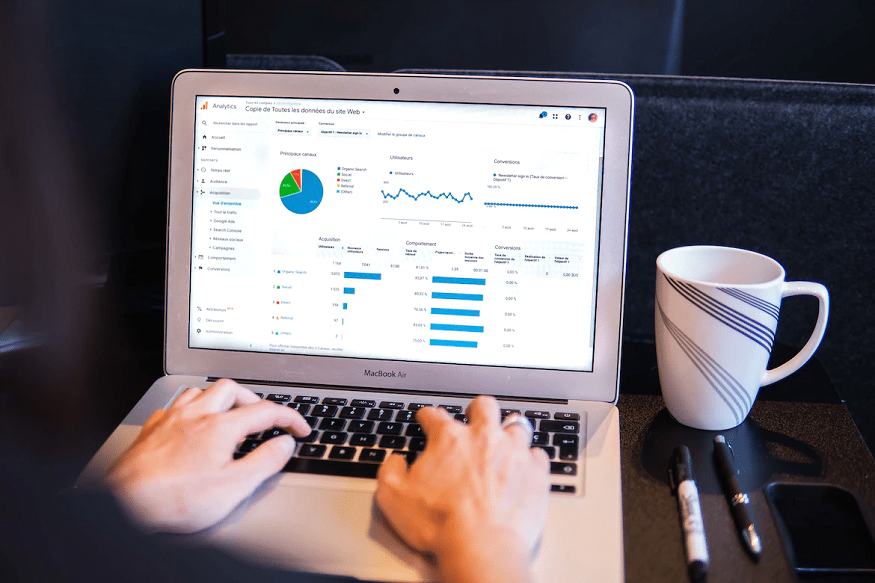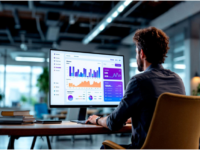The Growing Importance of the Research Marketplace in Modern Insights

In today’s fast-changing business landscape, the demand for real-time data and actionable insights has never been higher. Companies across industries rely on accurate research to make better decisions, understand their customers, and stay ahead of competitors. While traditional methods of conducting research involved lengthy processes and limited flexibility, the concept of a research marketplace has redefined the way organizations access insights. By bringing together researchers, participants, and advanced technology, these marketplaces have become a vital tool for businesses of all sizes.
What is a Research Marketplace?
A research marketplace is an online platform that connects organizations in need of data with a wide pool of respondents and research providers. Unlike conventional research agencies, these marketplaces are built to be flexible, fast, and scalable. Businesses can easily log in, set up their projects, and gain access to diverse participants from around the world. This democratization of research allows even small and medium-sized businesses to compete with larger corporations when it comes to data-driven decision-making.
One of the leading examples of this new era of insights is research marketplace platforms that make data collection more seamless and efficient. With user-friendly tools and access to global respondents, companies no longer need to rely solely on expensive and time-consuming traditional research approaches.
The Benefits of Using a Research Marketplace
The rise of research marketplaces has brought significant advantages to businesses:
- Speed and Efficiency – Traditional market research projects could take weeks or even months to complete. Marketplaces allow businesses to collect responses in real time, often within hours or days.
- Global Reach – Instead of being limited to local or regional participants, organizations can now access respondents across different countries, ensuring diverse and inclusive data.
- Cost-Effectiveness – Without the overhead of agencies and middlemen, businesses can access quality research at a fraction of the cost. This makes professional-level research attainable for startups and small enterprises.
- Flexibility – Marketplaces allow businesses to customize surveys, target specific demographics, and scale projects up or down depending on needs.
Why Businesses Are Adopting This Model
Organizations today must be agile. Consumer preferences shift rapidly, and waiting months for research reports can leave companies behind the curve. The research marketplace model provides a solution by combining technology with accessibility. Businesses can instantly design surveys, target specific audiences, and generate insights.
Additionally, many platforms offer integration with analytical tools, making it easier for companies to interpret raw data and transform it into actionable strategies. This accessibility empowers product managers, marketers, and executives alike to make decisions based on reliable evidence rather than guesswork.
Impact on Market Research Professionals
The emergence of marketplaces has also changed the role of research professionals. Instead of focusing solely on data collection, researchers now dedicate more time to interpreting insights and advising on strategic directions. By outsourcing the repetitive and time-intensive aspects of research, professionals can add greater value through their expertise.
For agencies, marketplaces have opened new opportunities as well. Many now partner with these platforms to expand their services, offering a hybrid model that combines automation with specialized consulting.
Use Cases Across Industries
The versatility of research marketplaces makes them valuable across multiple sectors:
- Retail and E-commerce – Understanding shifting consumer preferences and shopping behaviors.
- Healthcare – Gathering patient feedback for treatments, technologies, or wellness programs.
- Technology – Testing product features and user experiences before launch.
- Finance – Tracking consumer sentiment about investments or financial services.
- Media and Entertainment – Measuring audience reactions to content, ads, or branding campaigns.
Each industry benefits from the speed, cost savings, and scalability that these platforms provide.
Challenges and Considerations
While research marketplaces offer numerous advantages, businesses must approach them with awareness. Data quality remains a key consideration, as ensuring authentic and diverse responses is critical. Platforms that implement strict verification measures and quality controls provide more reliable results.
Another challenge is the over-reliance on speed. While rapid insights are valuable, businesses must balance fast data collection with thoughtful analysis to avoid making hasty or incomplete decisions.
The Future of Research Marketplaces
Looking ahead, research marketplaces are expected to evolve even further. Artificial intelligence (AI) and machine learning are already being integrated to refine participant targeting, detect fraud, and improve data accuracy. Additionally, real-time analytics dashboards will make it even easier for companies to act immediately on collected insights.
As industries continue to digitize, the importance of marketplaces will grow. Companies that embrace these platforms will gain a competitive edge, while those who hesitate risk falling behind.
Conclusion
The research marketplace has emerged as a game-changer in the field of insights and decision-making. By offering speed, scalability, cost efficiency, and global reach, it provides organizations with the tools needed to thrive in a competitive environment. From startups to multinational corporations, businesses can leverage these platforms to better understand their customers, test new ideas, and make data-driven choices.






